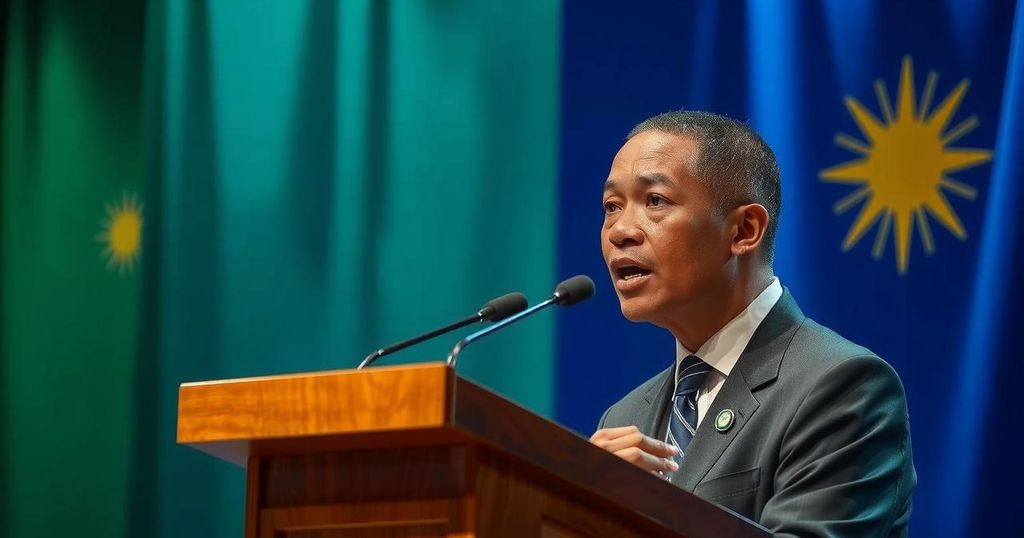Vanuatu’s Climate Change Envoy Critiques Major Polluters at ICJ

Vanuatu’s Special Envoy for Climate Change, Ralph Regenvanu, criticized major greenhouse gas emitters like Australia and the US for their ineffective action on climate change during ICJ hearings. He emphasized that reliance on failed treaties is insufficient, calling for accountability and immediate action to combat the existential threat of climate change, while urging support from former colonial powers.
Ralph Regenvanu, Vanuatu’s Special Envoy for Climate Change, has expressed strong criticism towards major greenhouse gas emitters such as Australia and the United States during the International Court of Justice (ICJ) climate hearings held in The Hague. He condemned these countries for relying on ineffective treaties to avoid taking assertive measures to reduce emissions, highlighting the dire urgency to address climate change, which he characterized as an existential threat.
In his address, Regenvanu stated, “Today, as sea levels rise and the impacts of climate change intensify, we cannot afford to bury our heads in the sand. Climate change is an existential threat that transcends borders, affecting all nations regardless of political ideology or geographic location.” He emphasized the necessity of moving beyond mere treaty adherence to enforce meaningful accountability for emissions.
Particularly critical of Australia and the United States, Regenvanu remarked on their substantial contributions to greenhouse gas emissions and their reluctance to confront the severity of the ongoing climate crisis. He expressed disappointment at their failure to acknowledge their roles in this crisis, stating, “We are obviously disappointed by the statements made by the governments of Australia, the United States, Saudi Arabia, and China during the ICJ proceedings.”
Vanuatu is asserting that the detrimental impacts of climate change breach international law, including obligations relating to human rights and environmental governance. The Envoy pointed out that nations responsible for significant emissions must recognize their accountability and take action, especially given their historical roles in colonialism and ongoing dependencies. Regenvanu also called for support from former colonial powers, urging France and the UK to back their quest for justice and advocate for the self-determination of vulnerable nations like Vanuatu.
Furthermore, he declared a universal call to action, maintaining that it is imperative for all nations, especially those with the greatest capacity for change, to align their policies with international legal standards and the urgent demands of environmental stewardship. “No country can afford to keep its head in the sand any longer. The time for decisive, legally grounded action is now,” he concluded, underlining the crucial need for immediate and collaborative response to global climate change challenges.
The article addresses the growing urgency of climate change, highlighting the criticism directed towards major emitters like Australia and the United States during an ICJ hearing. Vanuatu’s Special Envoy for Climate Change emphasizes the necessity for legal accountability from these countries, arguing that compliance with international treaties is insufficient in addressing the existential threat posed by climate change. The remarks come amidst increasing global awareness of and legal discourse surrounding the impacts of emissions on vulnerable nations and human rights.
In conclusion, Ralph Regenvanu’s statements underscore the urgent need for action against climate change, emphasizing accountability for major polluters and the requirement for international cooperation in addressing this crisis. His appeal for support from former colonial powers further illustrates the interconnectedness of historical responsibility and modern environmental challenges. As he argues, immediate and legally grounded interventions are essential to safeguard future generations from the destructive impacts of climate change.
Original Source: islandsbusiness.com






